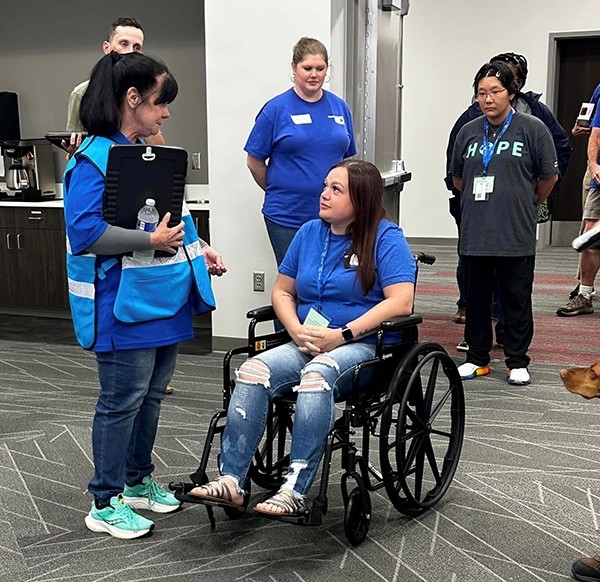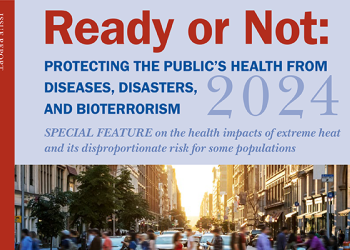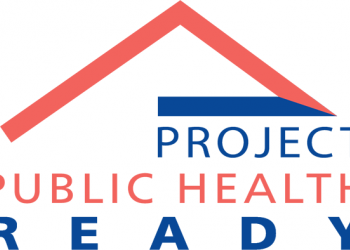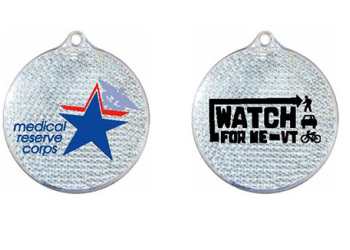Volunteers skilled in behavioral health can play an important role in Medical Reserve Corps (MRC) units in times of disaster and stress, supporting both residents and responders. To provide an example of the types of supports these trained volunteers provide, this month we highlight two units whose primary focus is behavioral health.
Oklahoma Medical Reserve Corps Stress Response Team
The Oklahoma Medical Reserve Corps Stress Response Team (OKSRT) is a statewide unit supporting all 77 counties in Oklahoma. Its volunteers are associated with their local MRC according to address and connected to the OKSRT by their skills designation. The unit’s more than 500 volunteers include licensed mental health professionals, nurses, and those who are clergy affiliated. The unit is housed within its own 501(c)3 nonprofit organization, SRT, Inc.
Last year volunteers responded to three tornadoes, assisting to staff a community drop off/resource center and supporting local health department Strike Teams who provided shots like tetanus to residents. In addition to helping with tasks like paperwork, volunteers supported assessments to see how residents were doing.
“We pair a mental health professional with a medical professional,” said Unit Coordinator Craig Long. “This helps to bridge the gap on both sides of what a person might need.
Volunteers have also helped to staff multi-agency response centers, cool down tents during the Oklahoma City marathon, tabled at weather safety fairs to talk about how to handle weather stress, and supported local disasters like a school bus accident.
Before volunteers deploy, they take a self-assessed pre-deployment survey, answering a series of questions to determine if they are in a good place mentally and emotionally to respond. A post-deployment survey assesses how they are doing with handling stress associated with the deployment and shifting back into everyday life. This post-deployment survey also helps the unit to understand if volunteers felt they were adequately repaired to respond, alerts leaders to any difficulties that may have arisen, and highlights any additional trainings that would have been helpful.
In addition to volunteer deployments, the unit has become a key training resource in the state, not just for other MRCs, but for local health departments, nursing students, community organizations, police departments, and others.
The unit’s trainings include Psychological First Aid (PFA), Skills for Psychological Recovery (SPR), Stress First Aid (SFA), Mental Health Awareness, De-escalation, Responding to Crisis in Children & Teens, Reboot & Providing CAARE: Recharging & Restarting after Disaster, Stop the Bleed, Until Help Arrives, and Immediate Responder.
“We’ve really seen increased demand for mental health training since COVID,” said SRT, Inc. President Loren Stein. “Stop the Bleed has a strong resilience and peace of mind component.”
Minnesota Behavioral Health Medical Reserve Corps
The Minnesota Behavioral Health Medical Reserve Corps is a statewide unit housed under the state department of health. Its 37 active volunteers all have a connection to behavioral health. Volunteers include psychologists, therapists, social workers, pharmacists, nurses, EMTs, school nurses, and chaplains. These are volunteers who are aware of the behavioral health services in Minnesota.
The unit’s volunteers have supported deployments including floods, fires, wildfires, and bird flu. During COVID, volunteers provided support to public health and healthcare workers. Volunteers generally work in four-person teams with a team leader and clinical lead.
One such deployment was to a flooded area in northern Minnesota. This was a multi-agency response involving FEMA, homeland security, and the small business administration. Unit volunteers provided behavioral health support, going with the team into communities.
“They heard a lot of stories of those battling the flooding night and day for two months,” said Unit Coordinator Janet Yeats. “Volunteers listened to homeowners and business owners who just needed to tell their story. We provided a listening ear and checked in on them.”
Volunteers worked not just with the survivors but with those on the team supporting the community.
“They got impacted—we heard their stories, too,” said Yeats.
To prepare its volunteers to deploy, the unit has a set number of required trainings which include introduction to NIMS and ICS, and Psychological First Aid. Recommended trainings include Skills for Psychological Recovery, De-escalation, Grief and Loss, and Managing Trauma.
“PFA is important for language and how to prepare for their role,” said Yeats. “We provide crisis intervention rather than therapy.”
Trainings are held monthly online and are open to local and state disaster response partners, which helps to ensure partners and volunteers are co-trained in skills. These trainings are also open to MRC coordinators across the state and the national MRC network.
“We think broadly about what we can give back to communities—not just in times of disaster,” said Yeats.
Like the Oklahoma Medical Reserve Corps Stress Response Team, the Minnesota Behavioral Health MRC checks with volunteers pre-deployment to ensure they are emotionally and physically ready to respond. The unit also makes it a high priority to check in with volunteers at the end of every day, one week later, and a few weeks after deployment.
“How we prepare is as important as how we take care of volunteers after a deployment,” said Yeats.
Looking ahead, the unit is actively working to expand its volunteer ranks. They’ve had an intern working with them to reach out to colleges and graduate schools in the state. They’re also outreaching to those licensed in communities including social workers, marriage counselors, psychiatrists, and pharmacists, as well as community health workers and chaplains.
“Word of mouth has been an important tool,” said Yeats. “We asked our current volunteers, ‘if this is something you enjoy, reach out to your colleagues.’ We increased our number of chaplains that way.”
The unit holds monthly information sessions about the MRC and how to join.
“I can’t say enough about having a behavioral health team,” said Yeats. “The more people can talk about the importance of behavioral health in disaster response, the better.”
MRC units interested in learning more about the MN Behavioral Health Medical MRC’s upcoming trainings or those interested in tools or resources to incorporate behavioral health into their units can contact Yeats at [email protected].
Additional Resources:
- MRC Mission Set for Behavioral Health
- Access a variety of resources and guidance from ASPR around disaster behavioral health
- Disaster Behavioral Health resource page (ASPR TRACIE)
- Responder Safety and Health Topic Collection (ASPR TRACIE)
- Mental/Behavioral Health (non-responders) Topic Collection (ASPR TRACIE)
- Disaster Distress Helpline (SAMHSA)
- Survivors of Disasters Resource Portal (SAMHSA)
- First Responders and Disaster Responders Resource Portal (SAMHSA)
- See how the Franklin Medical Reserve Corps (MA) helps senior citizens to build resilience
- See how Brookline MRC (MA) and Vashon Island MRC (WA) helped to combat social isolation during the pandemic









